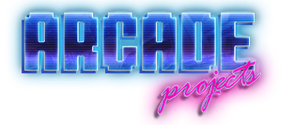MagicianLord77
Enthusiast
Hi guys, I'm having a bit of a struggle with the sound board of my MK II, game works fine, but sound board never gets to boot up properly, its LED rarely turns on. When started up or reset, most times it does something different, I mean I might get no bong, or 1, with all roms installed, prior to replacing capacitors I even got 7 bongs at some point, don't know if it was random, maybe it'll happen again.
Based on what I've been finding and what I've seen others do when researching about the topic, here's a list of the stuff I've done to the board. After all these things I would say it's still pretty much the same, can't perceive any different behavior more than randomness.

Here it's a pic of the board with the last testing "configuration", trying to remove anything unnecessary, only having U2 rom installed, and only power cable connected. I would get 2 bongs most times but sometimes also 1 bong or no bong.
Any help appreciated!
Based on what I've been finding and what I've seen others do when researching about the topic, here's a list of the stuff I've done to the board. After all these things I would say it's still pretty much the same, can't perceive any different behavior more than randomness.
- EPROMs were a bit rusty, dremeled their legs into a good shine and dumped them into the PC, all gave OK (mame romident), minus some with broken legs, replaced them with burned ones.
- Replaced 6 oxidized resistors. Some were really open circuit, and crumbled when getting them out.
- Axial (blue) caps were in bad shape and there was a bit of an old leak over the amplifier section coming from a radial one. Replaced them all.
- Tested replacing the CPU ADSP-2105 with the one of an untested Revolution X sound board (I don't know if it works), nothing different happened so replaced it back.
- Tested GAL A-17481 with the one coming from that PCB too. Also tested with one programmed by myself.
- Replaced 10Mhz crystal, old one seemed good but anyways.
- Removed SRAMs, tested in XGecu T48. all good. Installed sockets.
- U34, U33, U32
- Tried anyways placing a UM6116 replacing each individually. nothing different happened.
- Removed mostly all ICs that were not sound or parallel port communications related:
- U29, U30, U11, U36, U35, U24, U23, U22, U21
- Tested them all in XGecu T48, all good. Installed sockets and put them back on.
- Reflowed all CPU, GAL, U2 pins.
- Adjusted PSU voltage, measuring at the soundboard ICs, tried with 5.0v, 5.15v, 5.25v. Also checked -5v gets there OK.
- Logic probed all CPU pins, all seem to make contact with the IC.
- With all roms installed, or only U2 (program rom) installed, or with or without connecting the data cable that goes to main PCB, upon turning the board on I randomly may get 0, 1 or 2 bongs, the red LED light rarely turns on.
- In Sound Board Test / General Test I get "Sound IRQ Detect Functional" when data cable is connected.
- Amplifier seems to work since there's always a bit of faint background static noise that changes depending of what's on display, but it's never game sound, just digital noise (and bongs when they happen).
- Logic probe on CPU indicates sometimes there's constant never ending activity on the data bus, other times when turned on a bit of activity for some seconds then hi-Z, and other times just hi-z. It's just a matter of turning power on and off, and you may get different outcomes.
Here it's a pic of the board with the last testing "configuration", trying to remove anything unnecessary, only having U2 rom installed, and only power cable connected. I would get 2 bongs most times but sometimes also 1 bong or no bong.
Any help appreciated!
Last edited:

 , its A, B, C inputs were low, G1 hi, G2A/G2B were active. Checked that with those inputs, output should be Y0 = low (when G2A/G2B is low), also coincidentally Y0 is connected to CS of U2, the 1st ROM the CPU wants to read that contains the program code. Logic probe revealed that Y0 was always high. Further confirmed with scope. Took U11 out of the socket and tested it again with the T48, it says it is ok!?. Installed an old Motorola 74LS138 from the parts bin: Sound Board led turned on and sound started coming out!
, its A, B, C inputs were low, G1 hi, G2A/G2B were active. Checked that with those inputs, output should be Y0 = low (when G2A/G2B is low), also coincidentally Y0 is connected to CS of U2, the 1st ROM the CPU wants to read that contains the program code. Logic probe revealed that Y0 was always high. Further confirmed with scope. Took U11 out of the socket and tested it again with the T48, it says it is ok!?. Installed an old Motorola 74LS138 from the parts bin: Sound Board led turned on and sound started coming out! 
 might be useful for future repairs.
might be useful for future repairs.